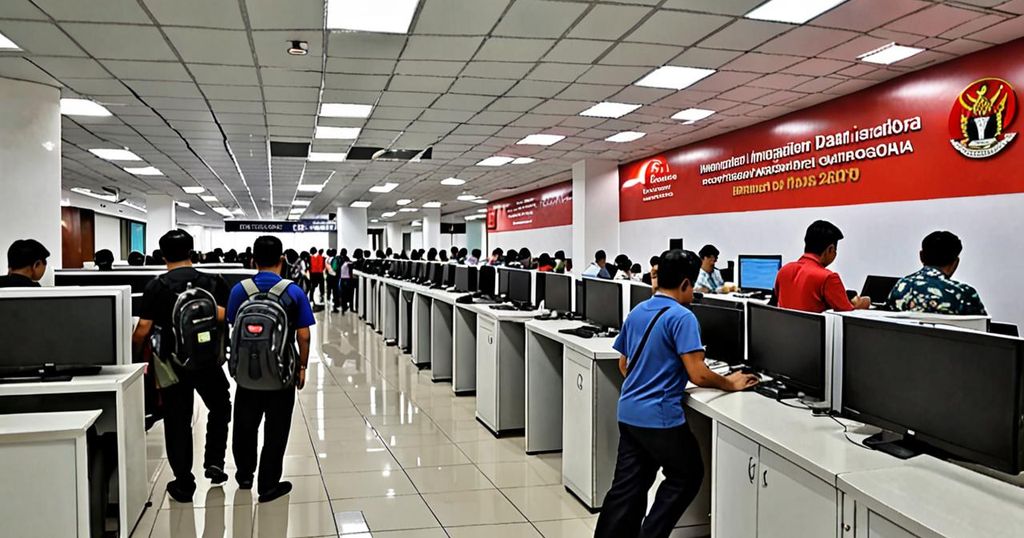The recent cyberattack on the immigration system in Indonesia has sparked significant apprehension regarding the security of personal data within the nation. This breach resulted from the implementation of new ransomware by hackers, enabling them to breach a vital data center and halt numerous public services. Indonesian authorities have verified that the hackers are demanding an $8 million ransom to relinquish control of the servers to the government.
The attack has disrupted operations at 210 state institutions across the country and has also raised concerns regarding the protection of citizens’ personal data. Hinsa Siburian, the head of the National Cyber and Crypto Agency, has confirmed that the hackers managed to decrypt the personal data of Indonesians, indicating a severe compromise in terms of privacy and data security.
The cyberattack, which commenced on Thursday, encompassed the installation of malicious files, deletion of crucial systems, and disengagement of operating services. The hackers specifically targeted the Temporary National Data Center facility in Surabaya, prompting widespread upheaval within the immigration system and other public services.
While immigration services such as passport issuance and visa processing are gradually recuperating, other systems such as the electronic procurement registry and online college tuition enrollment remain inaccessible.
This breach has instigated skepticism regarding the government’s capability to safeguard citizens’ personal data, resulting in a decline in public trust in the government’s digital service transformation. Wahyudi Djafar, the executive director at the Institute for Policy Research and Advocacy, emphasized that this incident underscores the government’s failure to secure citizens’ data and called for greater accountability and transparency.
Furthermore, the breach resulted in the exposure of data from the Indonesia Automatic Fingerprint Identification System, which has been made available for purchase on a hackers’ forum. This revelation has further intensified public outrage and calls for the government to take responsibility.
Despite the seriousness of the situation, the Indonesian government is implementing measures to mitigate potential future cyberattacks. The facility targeted by hackers in Surabaya is an interim arrangement until the construction of a permanent data center in Cikarang, West Java is completed. The new data center is expected to be a Tier IV facility, ingrained with a strong emphasis on fault tolerance and minimal downtime.
The impact of this breach has not only raised concerns about the security of personal data but has also spurred a reevaluation of cybersecurity measures in Indonesia. The government’s handling of this breach will be pivotal in rebuilding public trust and ensuring the safety of citizens’ personal information. The implications of the immigration data center breach extend far and wide in terms of privacy and data security in Indonesia, and the public, as well as cybersecurity experts, will be closely monitoring the government’s response to this crisis.

Leave a Reply